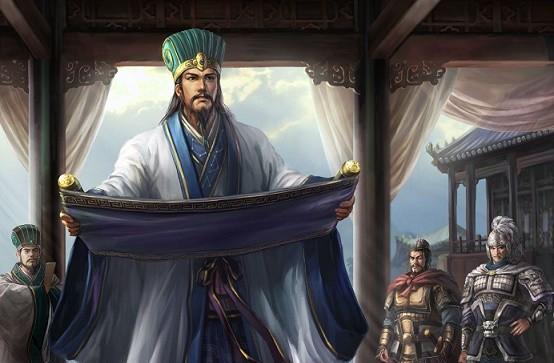On Christmas Eve, there was a post on the Internet about "Yueyang Louji", and it was found that everyone was quite interested in another famous article, "The Table of Teachers".
Mr. Zhuge presented to the later lord Liu Chan before the Northern Expedition the "Table of Teachers" is a must-read classic in the reading era, and I believe that everyone is familiar with it. In his recital, he admonished Liu Chan to be "pro-virtuous and far-fetched", and also recalled his experience with the former emperor Liu Bei, and his words were sincere.

"The Table of Renunciation" does not have the same flowery rhetoric as "Yueyang Louji", and it is not difficult to find that its historical value is much higher than its literary value - so that future generations can positively understand this deified character.
Zhuge Liang has always been a symbol of "wisdom" and "bowing to the fullest", but in fact, there has never been a shortage of people with both talent, morality and wisdom in China throughout the ages, and Zhuge Liang's excellence is that when he is in a high position of power, he can know each other and not suspect each other.
Since ancient times, the fate of ministers who have monopolized power is divided into two types:
(1) Alternate emperors - such as Sima Yi of the same period, who made many meritorious contributions to the Cao clan from his youth to middle age, but in his later years, the Cao emperor became a puppet of the Sima family;
(2) Liquidated by the emperor - for example, the "god of war" Lanling King, who eventually died of jealousy by the emperor because of his meritorious service.
And (i) and (ii) are also complementary, and the powerful ministers in high positions understand that once they lose power, they are very likely to be liquidated by political enemies or even the emperor, so it is easier for the powerful ministers to continue to seize power for self-preservation under the premise that the monarchs and subjects do not trust each other.
However, Zhuge Liang was able to open up the third outcome of the powerful subjects and achieve harmony between the monarchs and the subjects, which was noble because he knew how to grasp the measure, to be in a high position without self-aggrandizement, to be strict with himself, and to treat others with leniency. At the same time, this also depends on Liu Bei's deep understanding of the way of employing people, and I would like to ask how many monarchs in history can really employ people without doubt?
(End)